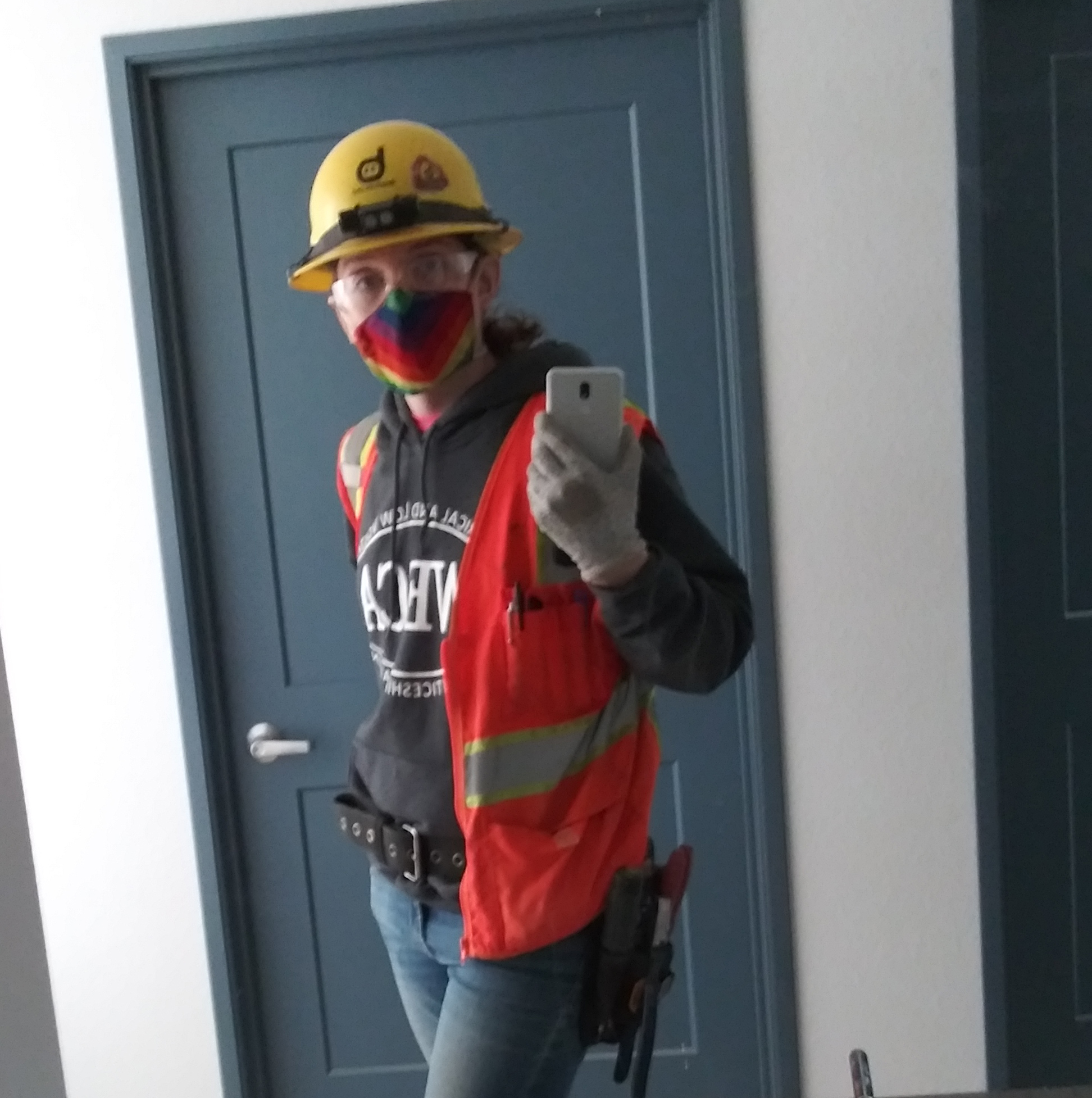 WECA Apprentice Charlotte Burggraf has had the best of both worlds—a traditional four-year college degree plus educational and on-the-job experience under her toolbelt with WECA—and says that “the biggest shortcoming of [college] was the complete lack of job experience during it.”
WECA Apprentice Charlotte Burggraf has had the best of both worlds—a traditional four-year college degree plus educational and on-the-job experience under her toolbelt with WECA—and says that “the biggest shortcoming of [college] was the complete lack of job experience during it.”
“You spend four-plus years for a piece of paper that, on its own, doesn’t get you a career. Even with a degree in hand, you still need to be able to show you can do the work to get hired by a company. Meanwhile, with WECA, or any apprenticeship program really, you get work experience as you do your classroom training, which sets you up well for a career in the field,” says Burggraf.
As a result, Burggraf was unemployed and depressed after college, and eventually re-examined what she wanted in her life. An office job sounded “so boring” to her because she likes “working with my hands, building things, using tools, getting dirty.”
So when a carpenter friend of hers recommended trying a trade, something in Burggraf’s head “just clicked”, leading her to look up local apprenticeship programs and sending off an application for WECA’s apprenticeship program.
From there, things moved fast for Burggraf—she completed testing and interviews and orientation within five weeks and was working right away after that.
“I’ve only been with WECA for over a year,” says Burggraf, “and I’ve really enjoyed the classes. It's really nice to learn the theory behind the work I've been doing day-to-day.”
Burggraf says that the classroom training with WECA “gives you the foundational knowledge to understand how the systems you’re working on work, and why we do things the way we do. If you know what to do, how to do it properly, why you’re doing it that way, and how the component you’re working on fits into the greater whole of the project, you’re going to find success in the field.”
While Burggraf enjoys her time in the classroom with WECA, she also equally enjoys working in the field, especially as a female electrical apprentice.
“I was definitely worried about how it [the whole work experience] would go before I started, but those fears turned out to be mostly unfounded,” says Burggraf. “My coworkers have all been really great and I haven’t faced any overt sexism. I would say the weirdest thing is just not having any other women around at work; I’ve gone days without seeing another woman, and it’s strange how normalized that has become [for me].”
To say that Burggraf recommends that women break into the electrical industry is an understatement.
“[More women should work in the electrical field because] it’s fun! You get to get your hands dirty building things! You get to break those gender stereotypes! You’ll have massive cred from the men you know outside of work. Plus, I want more female electrician friends,” says Burggraf.
Plus, Burggraf says that “it’s so satisfying when power gets turned on in a building for the first time and you realize how all those days of work you put in added up to a working electrical system. You helped build that thing, and that’s really cool.”
That’s a sentiment that we at WECA have heard many times over, but it always rings true. It is, indeed, wondrous to behold how electricians help to build and power life as we know it; the things we take for granted every day.
Thank you, Charlotte, for choosing WECA for your electrical apprenticeship! We are proud to educate and prepare you—and the future female electricians that will continue taking this industry by storm—for success in the electrical industry upon graduation.